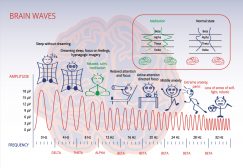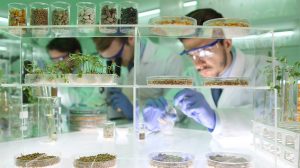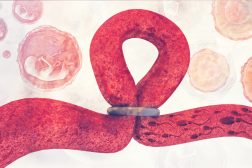Definition
noun
A metabolic pathway where CO2 is first added to phosphoenolpyruvate by the enzyme, PEP carboxylase, producing the four-carbon compound within mesophyll cells that is later transported to the bundle sheath cells where the CO2 is to be released for use in the Calvin cycle.
Supplement
Instead of the direct carbon fixation in the Calvin cycle like in C3 carbon fixation, the C4 pathway involves steps that first converts pyruvate to phosphoenolpyruvate (PEP) to bind with the CO2 forming a four-carbon compound (hence the name C4). As a result, the photorespiration pathway is bypassed, and the wasteful loss of CO2 common in C3 carbon fixation pathway is minimized.
Plants that first go through the C4 pathway are better adapted than plants that solely go through the C3 pathway under conditions of drought, high temperatures and low nitrogen or CO2 concentrations.
Word origin: from the intermediate organic compound, which contains four carbon atoms, hence the name C4.
Synonym: hatch slack kortshak pathway, Hatch-Slack pathway.
Compare: C3 carbon fixation pathway, Crassulacean acid metabolism.
See also: C4 plant.
Dictionary > C4 carbon fixation pathway
You will also like...

Sleep and Dreams – Neurology
While learning and intelligence are associated with the functions of a conscious mind, sleep and dreams are activities o..

The Water Cycle
The water cycle (also referred to as the hydrological cycle) is a system of continuous transfer of water from the air, s..

Regulation of Biological Systems
Regulation of Biological Systems tutorials are focused on the modulation of biological systems from cell to population l..

Kidneys and Regulation of Water and Inorganic Ions
The kidneys are responsible for the regulation of water and inorganic ions. Read this tutorial to learn about the differ..

Birth Control and Contraception
Different pregnancy and birth control and contraception strategies are described. Read this tutorial to learn each of th..

Water in Plants
The movement of molecules (specifically, water and solutes) is vital to the understanding of plant processes. This tuto..

